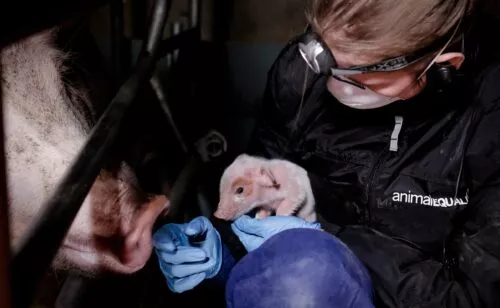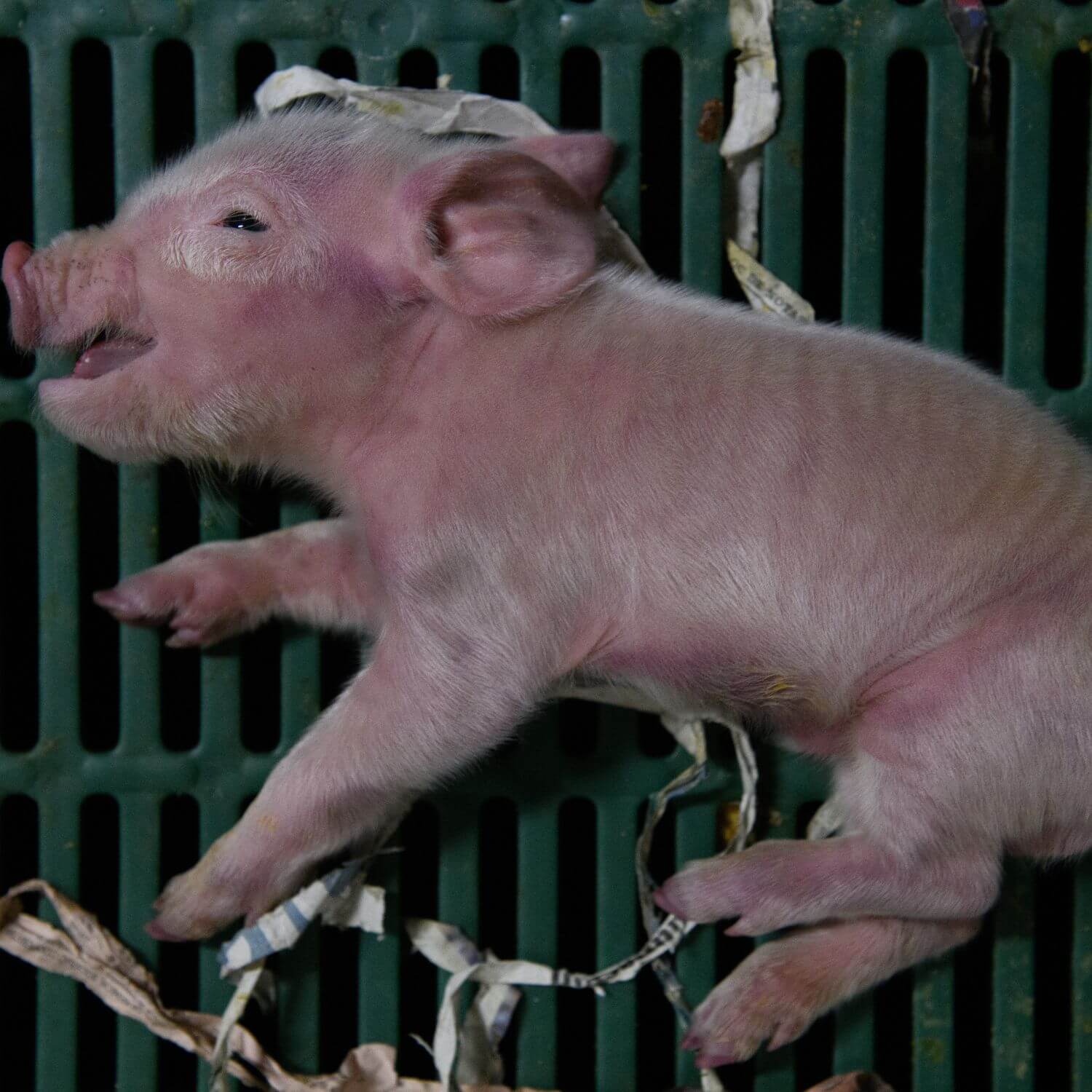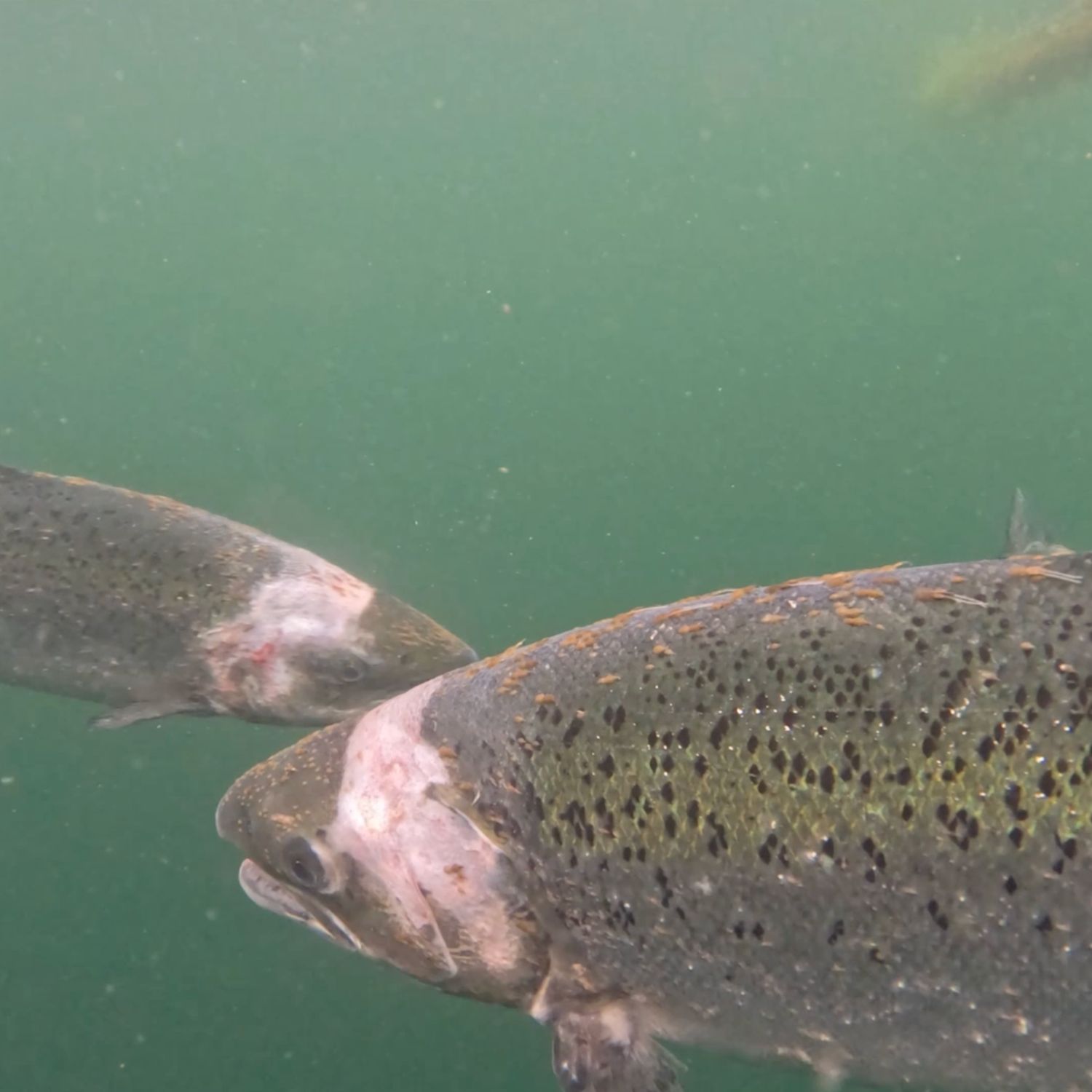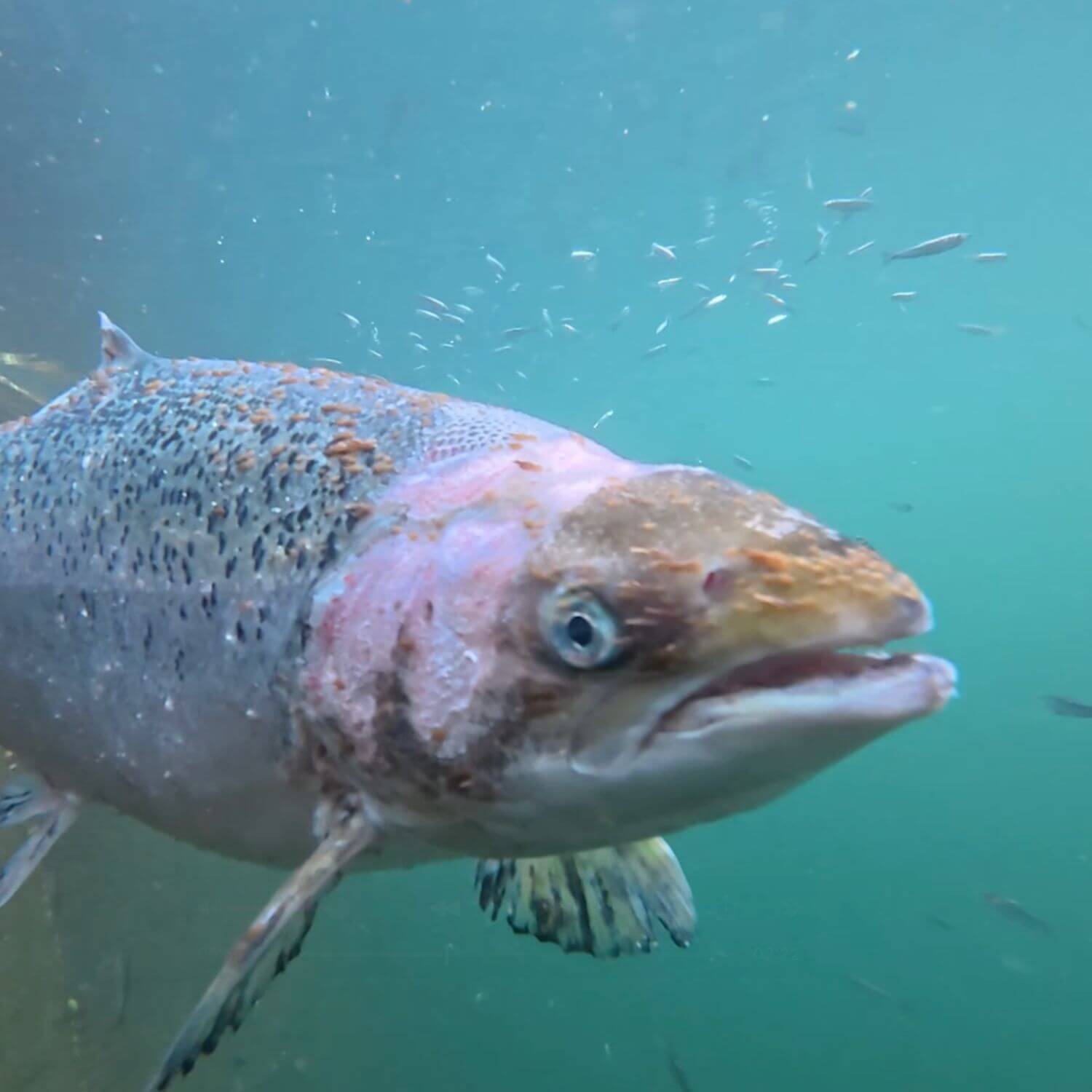Salmon industry could have seen around £10 million in fines in other countries but did not due to Scotland’s “pitiful penalty system”
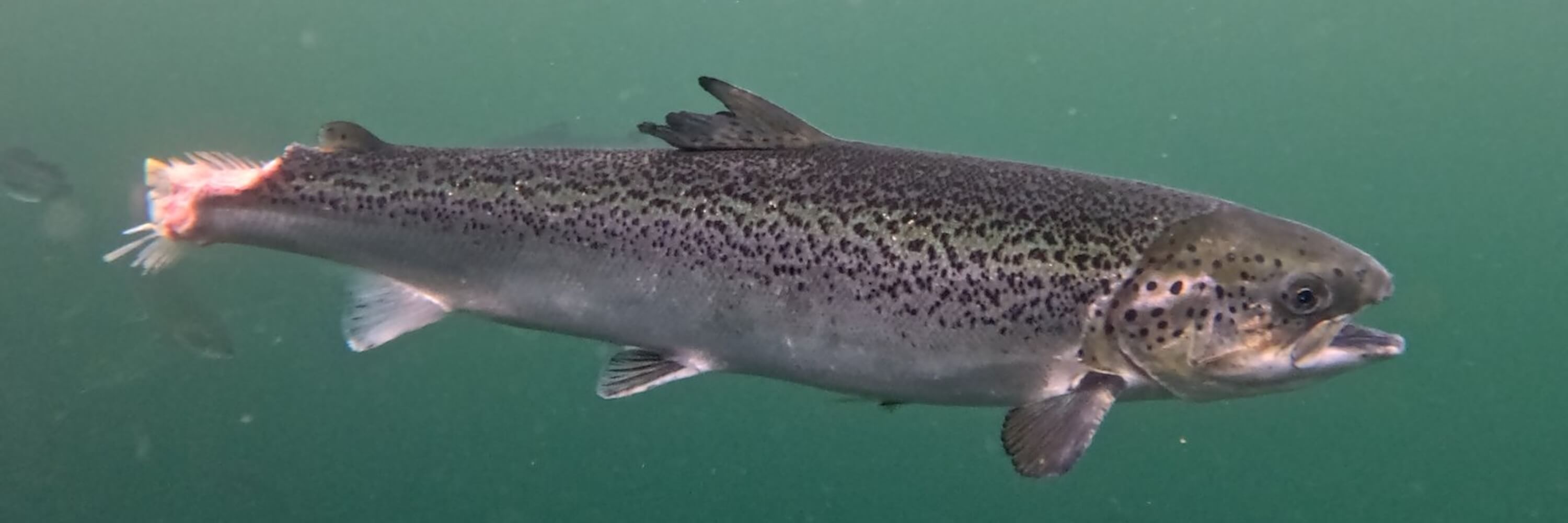
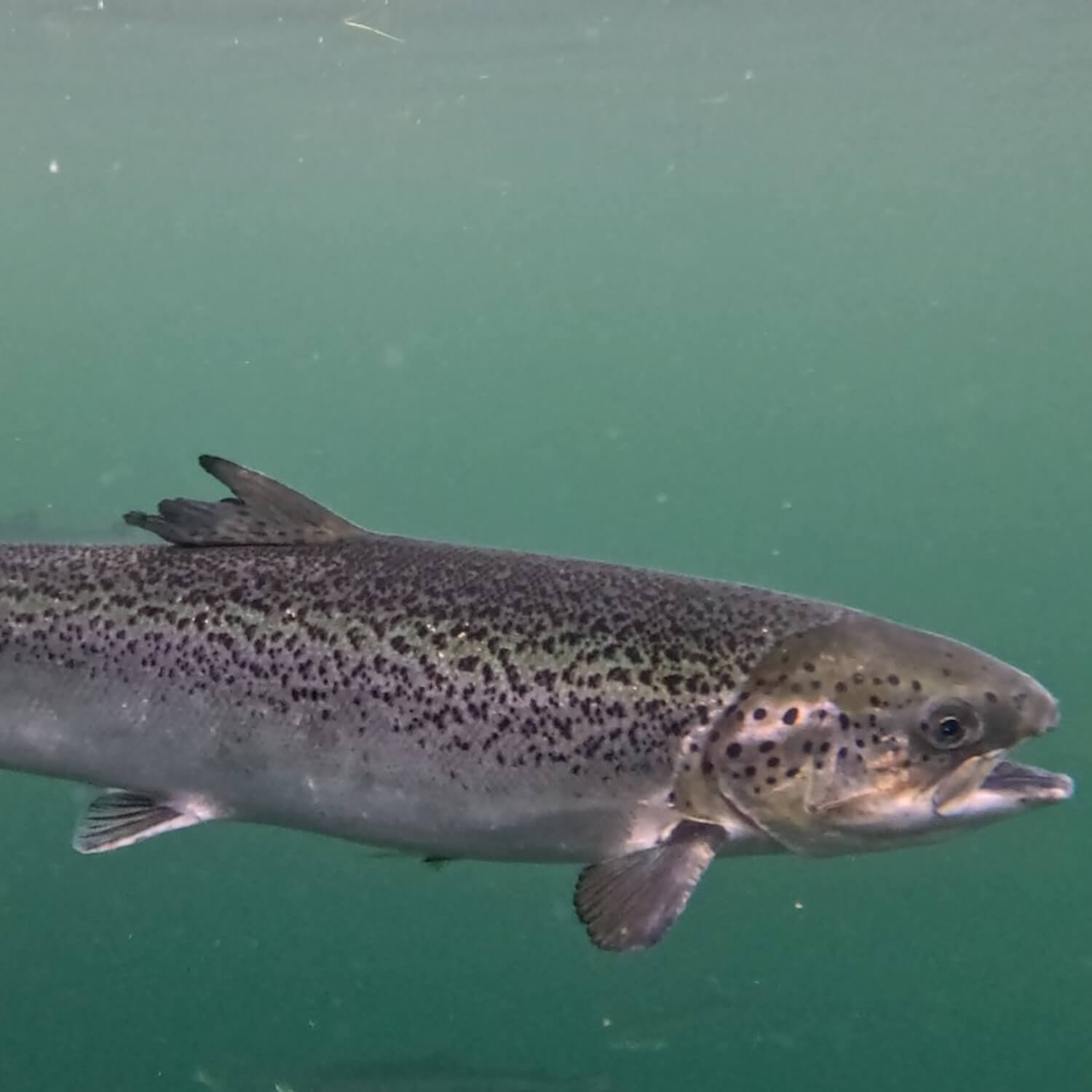
Hundreds of thousands of escapes, zero financial penalties
Animal Equality UK found that, over the past five years, more than 350,000 salmon have escaped from underwater sea cages. Escapes of this nature can result in a rapid spread of lice, disease, or DNA from farmed animals to wild animals and have a detrimental impact on wild salmon and trout populations. Despite over 70 escape or potential escape incidents being reported to authorities, none resulted in financial penalties for the Scottish farmed salmon industry.
If these same egregious incidents had happened elsewhere, the salmon farming industry would have faced serious financial consequences, as it should […] The Scottish Government’s failure to enforce meaningful penalties allows enormous companies to cut corners at the expense of the environment and animals.
Abigail Penny, Executive Director of Animal Equality UK
Other countries are cracking down – why isn’t Scotland?
Had these same incidents occurred abroad, the industry would have faced far greater consequences. The examples below highlight just how lenient Scotland’s approach is by comparison:
- In Scotland, 63 potential escape events (through, for instance, a hole or tearing of the net, or other reason) were reported since 2020 where zero fish were recorded to have escaped and no fines were imposed; in comparison, Norwegian authorities clamped down on escapes, slapping a £60,000 fine on the salmon industry after a crane tore a hole in a net. No fish escaped during the incident.
- In Scotland, 80,000 salmon escaped from a boat; regulators stated ‘it is not a legal requirement for transporters to report farmed fish escapes’ and failed to issue a financial penalty; in Iceland, 80,000 salmon escaped from a farm and the producer received an £656,000 fine.
- 73,000 salmon escaped from a farm operated by major producer, Mowi, due to incorrect equipment. Scottish Government officials stated that ‘it is not a statutory offence for a fish farm to suffer a breach of containment of farmed fish’. On the contrary, 54,000 fish escaped from a Mowi farm in Norway, and the company received a £347,000 sanction.
- Over the past decade, according to fish escape data between 2014 and 2024, over 700,000 fish have reportedly escaped Scottish salmon farms; no fines have been issued. Whereas, in Chile, 690,000 fish escaped from a farm and received a £4.3 million fine.
Scottish regulators do not impose fines for fish escapes as it is not considered ‘a statutory offence for a fish farm to suffer a breach of containment of farmed fish’.
Escapes are not the only area where enforcement is lacking
Soaring deaths within the Scottish farmed salmon industry have also been a key concern over recent years, with deaths doubling since 2018, and tens of million dying on farms due to disease outbreaks, lice infestations, warming waters, predation, or abrasive industry treatments.
There is no meaningful deterrent for companies operating in Scotland. The government is letting mass deaths and environmental damage essentially go unchecked. This cannot continue.
Abigail Penny, Executive Director of Animal Equality UK
A failing system of oversight
The enforcement of legislation covering aquatic animals in Scotland is shared between three bodies:
- The Scottish Environment Protection Agency (SEPA), primarily responsible for environmental non-compliances
- The Fish Health Inspectorate (FHI), whose role is primarily to prevent the spread of disease
- The Animal and Plant Health Agency (APHA), which oversees animal welfare
Yet, Freedom of Information requests reveal that enforcement actions remain minimal, even when violations are detected.
A Freedom of Information request (F0198563) revealed that SEPA saw an average of one non-compliance every six days since mid-2023, but issued no financial fines.
‘Between 1 April 2023 and the end of January 2025’, it said, ‘there are 118 records relating to a non-compliance at finfish aquaculture sites, covering a total of 81 sites’.
The FHI saw (also revealed through FOI) a total of 55 legal violations, more than one per week throughout 2024 but imposed no financial penalties since 2021. 47 of these were for record keeping, five were for trade, two were for movement restrictions and one was for authorisation conditions.
Finally, the APHA, received 22 complaints of welfare abuses since 2022 but has never issued a formal warning letter, Care Notice, or escalated a case related to fish welfare to the Crown Office and Procurator Fiscal Service. 20 of these complaints were investigated and 12 resulted in action which either included verbal advice, written advice or follow-up visits.
Scotland’s lenient enforcement contrasts sharply with international approaches. The Scottish Government must act now to hold Scottish salmon companies accountable for the irreparable damage they’re causing.
Abigail Penny, Executive Director of Animal Equality UK
Global penalties show Scotland is falling behind
International examples show what proper enforcement can look like.
In Chile, one company was fined £3.4 million after exceeding ‘permitted production’ by 11% and crowding cages with too many animals. In contrast, Loch Garry in Scotland exceeded ‘permitted production’ by 40% (according to data in the SEPA inspection report), receiving no fines.
Elsewhere, a 600-litre fuel leak in Canada resulted in a £301,000 fine. In Scotland, a Scottish Sea Farms vessel sank, spilling 200 litres of fuel into the country’s lochs – yet faced no Government fine.
It’s time to take action
Despite hundreds of thousands of fish escaping, high mortality rates, and repeated legal breaches, the Scottish salmon industry continues to operate without meaningful consequences. Unlike countries such as Norway, Iceland, and Chile – where companies are hit with hefty fines for similar failings – Scotland’s regulatory bodies have failed to issue financial penalties for escapes, mass deaths and other breaches in recent years.
This failure of enforcement has not gone unnoticed.
On Thursday 20th March, Members of the Scottish Parliament (MSPs) gathered to discuss a damning report from the Government’s Rural Affairs and Islands Committee. The report questioned the industry’s long-term viability, highlighting unacceptable levels of sea lice, mass fish deaths, escape incidents, and poor legal oversight. MSPs from across the political spectrum – including the SNP, Labour, Greens, and Conservatives – expressed alarm, with several backing a proposed halt to the industry’s expansion.
You can help, too.
The most powerful thing you can do is choose plant-based alternatives to salmon – and if you haven’t already, add your name to our petition calling on the Scottish Government to halt the expansion of this cruel and broken industry. Every voice matters, and together, we can hold the salmon farming industry to account.
NB: Penalty figures quoted above are subject to exchange rate and may vary accordingly.


